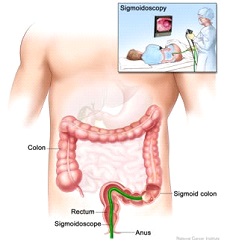Dysentery Symptoms, Causes, Diagnosis and Treatment

What Is Dysentery?
An inflammation of the intestine triggering diarrhea through blood is known as Dysentery. Different symptoms possibly will contain abdominal pain, rectal tenesmus, and fever incomplete. It’s triggered by numerous kinds of infection for instance protozoa, parasitic worms, viruses, or bacteria. It’s a kind of gastroenteritis. The appliance is an inflammatory condition of the intestine, particularly of the colon.
What Are The Symptoms Of Dysentery?
In most of the advanced countries, bacillary dysentery is an extremely common form of dysentery that is usually a minor illness, triggering symptoms usually containing diarrhea and regular passage of stool or slight stomach pains. Normally Symptoms occurs after 1-3 days and do typically no longer exist after one week.
In risky cases, persons will complain of abdominal pain, vomiting, and regular watery and typically smelly diarrhea, along with rectal pain, fever, blood and mucus. Nausea, quick weight loss, and comprehensive muscle ache at times as well accompany dysentery. In some cases, it possibly will more severely infect different organs for instance lungs, the liver, and the brain.
How Dysentery Is Diagnosed?
By doing a short-term analysis or by taking a history and clinical diagnosis possibly will be prepared. Usually, Cure is begun without or before approval by laboratory examination.
- Physical exam: The lips, skin, and mouth possibly will look dry because of dehydration. Lower stomach soreness might as well be present.
- Stool and blood tests: Stool samples are tested with the purpose of identifying the organism triggering dysentery. Generally, few samples have to be obtained because of the changing amount of amoeba that changes every day.
How Dysentery Is Treated?
Treatment is not normally required because it generally sort out on its own. Though, it is vital to ensure that you drink lots of fluids and utilize ORS (oral rehydration solutions) if required, to ignore dehydration. Look treating diarrhoea for extra facts on this.
The painkillers for example paracetamol is able to assist in get rid of a fever and pain. It is good to avoid antidiarrhoeal medicines, for instance, loperamide because they are able to make things not good.
You have to stay at the house till minimum 48 hours later the final period of diarrhoea, to decrease the possibility of transferring the infection on different individuals.
In some serious cases, you possibly will need to be cured in the hospital for a couple of days.
What Causes Dysentery?
There’re 2 major kinds of dysentery:
- Shigellosis or bacillary dysentery– triggered by shigella bacteria; it is an extremely common kind of dysentery in the United Kingdom.
- Amoebiasis or amoebic dysentery – triggered by an amoeba known as Entamoeba histolytica, which is mostly found in hot areas; this kind of dysentery is generally collected in abroad.
However, both kinds of dysentery are extremely infectious and able to be passed on if the poo of ill individuals enters the mouth of another person.
This might occur if somebody suffering from this infection does not wash their hands after coming from the toilet and after that touches another person, food, or surfaces.
What Are The Risk Factors For Dysentery?
Following are the risk factor for the Dysentery:
- Bedding.
- Dirty water.
- Flies on food.
- Dirty food.
- Clothing.
- Travelling Worldwide.
- Poor hygiene.
By : Natural Health News




